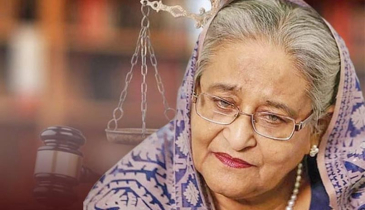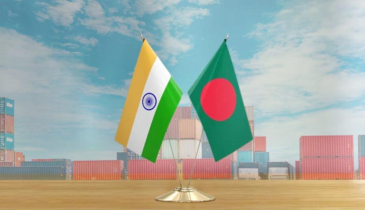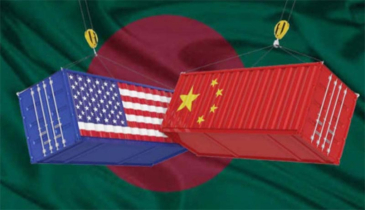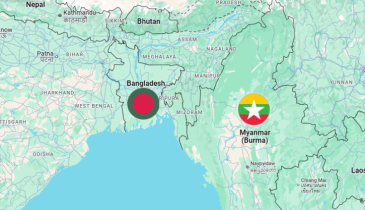The never-ending killings on the India-Bangladesh border
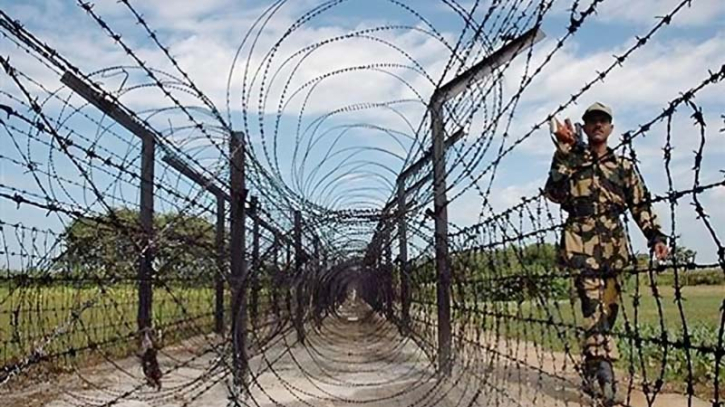
The recent border killing incidents on the India-Bangladesh border of a 16-year-old girl, Swarna Das, and 14-year-old boy, Jayanta Kumar Singh, allegedly by Indian border guards, has become the talk of the country. Yes, there should be a solid mechanism for every sovereign state regarding border protection as it is a legitimate function that ensures the territory's security and regulates the flow of people and goods across borders.
However, the responsibility requires adherence to international law that balances the duties and respects human rights, particularly regarding the use of force. Border killings always pose significant challenges to international human rights standards that are often associated with excessive or arbitrary use of force by law enforcement agencies.
On the India-Bangladesh border, the role of law enforcement agencies, particularly the Border Security Force (BSF) of India and the Border Guard Bangladesh (BGB), has been central to the issue of border killings that have drawn significant attention to human rights violations. Due to a huge number of incidents on this border, there is the existence of tensions between the two countries and raised concerns about the use of excessive force and violations of international human rights standards. Bangladesh-India border has been recognized as a ‘killer border’ as well as the ‘deadliest’ border in the world.
Role of border security forces
India’s BSF is primarily responsible for maintaining security along the 4,096 km India-Bangladesh border. Their mandate includes preventing illegal immigration, cross-border smuggling, and other criminal activities. On the contrary, the BGB (Bangladesh) is tasked with protecting Bangladesh’s side of the border and ensuring cooperation with India’s BSF to prevent illegal activities. However, there are accusations of excessive use of force by the BSF in the name of different operations, forgetting their roles. Several reports have shown that civilians, many of whom are involved in smuggling or just crossing the border for economic reasons, have been shot and killed. However, alarms have been raised by human rights organizations, including Human Rights Watch and Amnesty International, about indiscriminate killings of civilians.
Human rights violations
As there are allegations that BSF often acts outside the boundaries of law, the killings have been characterized as extrajudicial. This encompasses allegations that civilians are shot without a fair trial or appropriate warnings for suspected unlawful crossings or smuggling, thereby violating international human rights norms. Additionally, a climate of fear has been established as a result of allegations of torture, beatings, and harassment directed at the local people residing in the vicinity of the border areas. Claims of disproportionate force have been made as a result of the significant number of unarmed civilians, including women and minors, who have been killed.
According to international law, states have the sovereign right to protect their borders. Controlling immigration, preventing illegal crossings, combating smuggling, ensuring national security, etc., all are included. The UN Charter recognizes the sovereignty of states, which provides for the right to protect their territorial integrity. Moreover, a state's right to non-intervention in internal matters, including the protection of borders from external threats, is affirmed by Customary International Law and Article 2(7) of the UN Charter. States have the authority to implement policies that regulate cross-border migrations, enforce immigration laws, and protect their territories, provided these policies adhere to international human rights standards. International law, including the International Covenant on Civil and Political Rights (ICCPR), prohibits arbitrary deprivation of life and requires that lethal force be used only as a last resort.
The UN Basic Principles on the Use of Force and Firearms by Law Enforcement Officials further underscore the necessity and proportionality of force. These norms are frequently perceived as being in opposition to the actions of the BSF. The use of firearms to stop border trespassers or petty smugglers has been viewed as excessive, given the non-threatening nature of many individuals involved.
Diplomatic tensions and accountability
The recurrent border killings have been a source of tension between India and Bangladesh. The government of Bangladesh has consistently urged India to implement non-lethal measures and exercise restraint in border management. In response, India has underscored the challenge of securing a frontier that is both expansive and permeable while also committing to reducing the use of lethal force. Despite these promises, Accountability for the BSF's actions has been negligible. The families of the victims continue to struggle for justice, as investigations into their deaths frequently fail to result in prosecutions.
Need to reform practices
In the words of Brad Adams, the Executive Director of the Asia Department of Human Rights Watch, "Routinely shooting poor, unarmed villagers is not how the world's largest democracy should behave." The previous government had also stated that to prevent border killings, border guards of the two countries had made a high-level decision only to use non-lethal weapons, such as rubber bullets and sound grenades. The home ministry stated that border killings are unwarranted and undesirable, and it urged India to investigate all such incidents, hold responsible individuals accountable, and ensure justice. Even though Bangladesh's interim government has expressed its desire for New Delhi to take the issue of border killings seriously, it has no plans to escalate the problem.
The role of law enforcement agencies in the border killings at the India-Bangladesh border has been the subject of significant controversy and criticism. These agencies have been implicated in severe human rights violations, such as the use of excessive force and extrajudicial murders. Ongoing efforts to reform practices and ensure greater accountability are crucial to improving the situation and protecting the rights of civilians living along the border areas. -Source: south asia monitor
.png)


